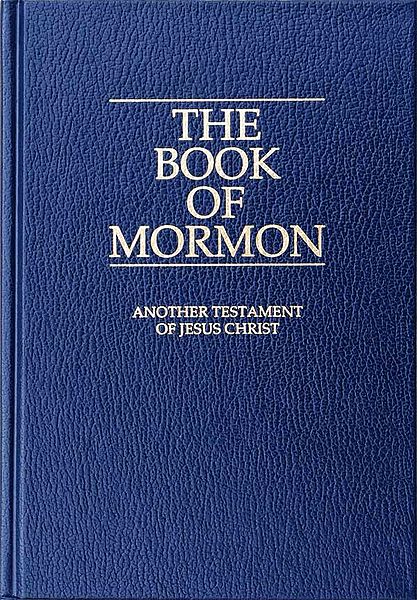Difference between revisions of "Laban"
m |
Dennisangot (talk | contribs) |
||
| Line 1: | Line 1: | ||
| − | [[Laban]] is a man mentioned in the [[First Book of Nephi]] as keeper of the [[Brass Plates | brass plates]] in [[Jerusalem]] about 600 B.C. The record contained the books of Moses, many prophetic writings (including Isaiah), and the genealogy of the tribe of Joseph: | + | [[image: Book of Mormon.jpg|200px|right|alt=The Book of Mormon|The Book of Mormon]][[Laban]] is a man mentioned in the [[First Book of Nephi]] as keeper of the [[Brass Plates | brass plates]] in [[Jerusalem]] about 600 B.C. The record contained the books of Moses, many prophetic writings (including Isaiah), and the genealogy of the tribe of Joseph: |
:For behold, Laban hath the record of the Jews and also a genealogy of my forefathers, and they are engraven upon plates of brass. | :For behold, Laban hath the record of the Jews and also a genealogy of my forefathers, and they are engraven upon plates of brass. | ||
Latest revision as of 22:51, 28 September 2010
Laban is a man mentioned in the First Book of Nephi as keeper of the brass plates in Jerusalem about 600 B.C. The record contained the books of Moses, many prophetic writings (including Isaiah), and the genealogy of the tribe of Joseph:- For behold, Laban hath the record of the Jews and also a genealogy of my forefathers, and they are engraven upon plates of brass.
- And he desired of Laban the records which were engraven upon the plates of brass, which contained the genealogy of my father .
- And after they had given thanks unto the God of Israel, my father, Lehi, took the records which were engraven upon the plates of brass, and he did search them from the beginning.
- And he beheld that they did contain the five books of Moses, which gave an account of the creation of the world, and also of Adam and Eve, who were our first parents;
- And also a record of the Jews from the beginning, even down to the commencement of the reign of Zedekiah, king of Judah;
- And also the prophecies of the holy prophets, from the beginning, even down to the commencement of the reign of Zedekiah; and also many prophecies which have been spoken by the mouth of Jeremiah (1 Nephi 3: 3, 12; 1 Nephi 5:10-13).
Lehi sent his sons from the wilderness up to Jerusalem to get the plates from Laban. They drew lots, and Laman, the eldest son, was sent to the house of Laban. Laban repelled him with threats. Then all the brothers tried to bargain for the plates, offering all their substantial wealth in trade. Laban took their offered possessions without giving them the plates. He then ordered the sons of Lehi slain by his servants. They fled.
Later on, Nephi came to the city of Jerusalem by night. He found Laban drunk unconscious, lying outside with his sword nearby. Nephi was commanded by God to kill Laban and recover the plates. The Lord told Nephi that he was justified, because the lord had commanded him, and it would be better that one man perish than a whole nation dwindle in unbelief.
Nephi hesitated, having never committed such an act of violence. But according to the Lord's command, he finally slew Laban with his own sword. Nephi took his armor and sword and posed as Laban to Laban's servant Zoram. Zoram believed he was Laban. He retrieved the plates, and accompanied Nephi and his brothers into the wilderness and on to the promised land of the Americas.
When Nephi returned to his father with the brass plates it was revealed that Laban and Lehi were related distantly.
- And it came to pass that my father, Lehi, also found upon the plates of brass a genealogy of his fathers; wherefore he knew that he was a descendant of Joseph; yea, even that Joseph who was the son of Jacob, who was sold into Egypt, and who was preserved by the hand of the Lord, that he might preserve his father, Jacob, and all his household from perishing with famine (1 Ne. 5: 14, 16).
Though Laban's actual position in Jewish society remains unknown it was revealed in the scripture that he had many men under his command, and associated with the highest elders of Jerusalem.
